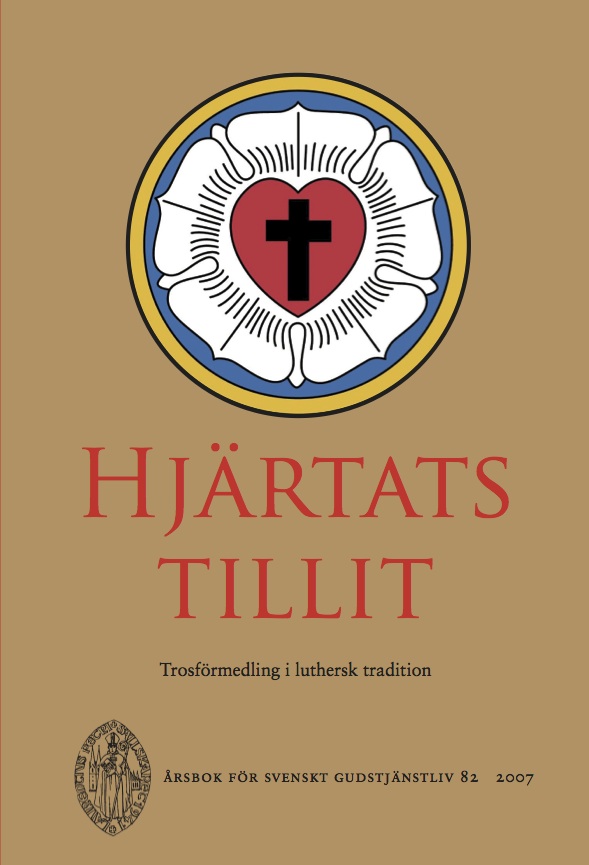Välsignelse i trinitarisk belysning. Luthers tolkning av den aronitiska välsignelsen
Abstract
Blessing in Light of the Trinity. Luther's Interpretation of the Aronitic Blessing
Luther introduced the priestly or Aaronitic blessing (Num. 6, 24–26) as the conclusion to the Mass. This form of the blessing has got a key position in the liturgy of the Swedish and Finnish churches. What exactly is »a blessing »? What does it mean to bless and to be blessed? What does the blessing signify in Luther’s theology and why did he emphasize the Aaronitic form? This article focuses on these questions.
Luther interprets the text of Num. 6, 22–27 in his writing Der Segen (1532). Two structures of thought can be distinguished in this writing, which are also found in other important writings of Luther. The first is a distinction between physical and spiritual blessings. The physical blessing includes everything that is sustaining the body. The spiritual blessing is the gift of grace and salvation. Blessings of the first kind belong to the temporal life, the others to eternal life.
Another thought, apparent in Der Segen, is that the triune God is the one who blesses. Luther interprets the three lines in the Aaronitic blessing on the basis of this thought pattern. The physical blessing is an expression of the continuously preserving work of the Creator. The spiritual blessing was brought by Christ, the Son, and this blessing will still be bestowed through the Gospel, and it will also be supported by the work of the Holy Spirit. So, in giving his gifts, in blessing men, God himself is present. To be blessed means on an existential level to feel safe and secure in the midst of a troubled world. The response of man is to praise God.
There is no easy answer to the question of why Luther recommended the Aaronitic blessing. There were other alternative blessings available to him. Its biblical origin is not a sufficient explanation. The text in Numbers gives, however, a detailed description of what a blessing is. The metaphorical language also harmonizes with Luther’s way of preaching. As a »piece of preaching» the text of the blessing can arouse confidence in God, and the receiver can put his or her faith in the promise of God’s blessing.
Downloads
Publicerad
Nummer
Sektion
Licens
© författarna, Laurentius Petri Sällskapet för svenskt gudstjänstliv samt Artos & Norma bokförlag. Det är tillåtet att kopiera och använda material ur Svenskt Gudstjänstliv för forskningsändamål om källan anges. För övriga ändamål kontakta respektive artikelförfattare samt förlaget. Särskilda restriktioner kan gälla för bildmaterial.


